nonchalance won't save you from heartbreak
dating would be easier if we just admitted we cared
🎧 Prefer to listen? An audio version of this piece is available below — read by me.
I’ve been thinking a lot about nonchalance, recently. Especially when it comes to dating. Why do we all pretend not to care, when it clearly makes us feel so lonely? I think I might have the answer.
When I was 18, I went on my very first date with a boy in Italy.
“Want to go out for dinner?” he asked me. “—oh and, it’s a date” he added before I could respond, clearing up the context of the dinner before it happened.
“Okay…” I replied, hesitant—because 1) I’d never been properly asked on a date before, and 2) his upfront-ness about his intentions caught me off guard. The boys at high school would never.
“It’s okay if you don’t want to go on a date, if you don’t feel like that about me,” he reassured me, picking up on my hesitance. “We can just go out as friends.”
And the truth was, I wasn’t sure I had feelings for him. I didn’t really know what ‘having feelings’ felt like. But I knew that this kind of candidness was something I found attractive, so I agreed to go on a date with him.
He picked me up at 8pm from the hotel I was staying at with my parents in Venice. I opened the door to his outstretched hand, his vespa parked just behind him in view. It was like that scene from The Lizzie McGuire Movie, where Paolo comes to pick Lizzie up from the hotel, leaning on his vespa just outside her window. It was a scene I didn’t know existed in real life.
He gave me a pink and gold Roberto Cavalli scarf to “protect my hair” underneath the helmet. I still have it. He kissed me on the cheek with a “ciao, bella”, helped me onto the back of his vespa, instructed me to hold on and zipped us off, down the lively winding streets of Venice, my hair blowing in the warm coastal breeze.
I remember feeling so alive. Like anything was possible. Like the world was a hopeful place, beckoning me with warmth, inviting me to step through and experience it in all its colour.
It was a feeling I hadn’t felt in years. I’d spent the past 5 of them at a school full of kids I didn’t understand. I’d tried to fit in because not standing out made my life easier. But fitting in meant pretending not to care about things I cared about deeply. Being liked, being pretty, being desired. At my high school, nonchalance was rewarded with cool-girl status. It was hot to not care.
But in Italy, on the back of this boy’s vespa, I felt free to care a lot. And I liked it.
He took me to a restaurant owned by his aunt. It was a Monday, so the restaurant was closed, but he’d asked her to make dinner just for us.
Picture me, an 18-year-old girl who had pushed aside any dream of romance due to the imminent disappointment and embarrassment that followed, finding herself in an empty restaurant with a cute Italian boy in the middle of Venice eating a private dinner cooked by his aunt. I felt like I might wake up at any moment. That all he’d have to do is say “just kidding!” in the middle of the meal and leave me there alone, and I’d be right back to kicking myself for not assuming the worst.
But to my delight, we got red wine drunk instead; ate ourselves silly, and then walked the streets of Venice hand-in-hand, talking and eating gelato until the sun came up.
It was the perfect date. I was sad to see him zip off on his vesper and into the daylight. But I had a renewed sense of hope for romance. I thought that maybe it existed as I’d imagined it, all along.
Six months later, I returned back home—now 19—with a fresh perspective. I’d seen a part of the world that felt like it understood me and I was more equipped to stand my ground on feeling big. It had felt really natural and acceptable to get swept up in big feelings in Italy and knowing that there was a place I could do that without being mocked—gave me confidence to bring it back to Australia.
But alas, my confidence was almost immediately shattered by two bartender men I’d become closely acquainted with. Before leaving for Italy, my best friend and I had frequented this cocktail bar, full of dapper men with record collections who made drinks with entire mint sprigs and fancy bitters in them and winked at us while we danced to Diana Ross. It was fun until it wasn’t. Until they weaselled their way into our DMs and then our beds, telling us sweet nothings about our beauty in private, only to deny us in public.
I’d had a crush on one of them for a year. I slept in his bed the night before I flew to Italy—and never heard from him again. Meanwhile, the other bartender—who had been chasing me despite my very clear “no, thank you”—found out, felt his ego bruised, and decided to punish me for it.
So, when I walked back into that bar with my newfound Italian confidence, ready to express my feelings, my sexuality and my desire for proper romance and raw honesty—I was faced with cold silence from them both.
They each looked at me, expressions blank, and ignored my presence. They didn’t say hello back. They didn’t embrace me on entry like they always had. They simply took my order as though they’d never seen me before, and proceeded to ignore my existence.
I was crushed. These were two men who had each told me they had deep feelings for me, that had knowingly toyed with my emotions, that had taken advantage of my innocence. I’d been ready to face them. To tell the one I liked, the truth. That if he liked me like he claimed to, that we should go on a proper date. To tell the other that while I loved our conversations, I had no feelings for him. That I knew that was hard to hear, but that his persistence wouldn’t change anything. That he had to stop.
But neither of them gave me the chance. They gave me no other option but to drain my cocktail and leave the bar, silently, my own ego severely bruised. What had I done to deserve their cruel nonchalance?
Immediately, my romantic awakening in Italy felt so out of reach. I felt stupid for allowing myself—if only for one night—to believe in honest romance at all. I was transported right back to the school yard I hated, where nonchalance was the most highly regarded emotional response to romance. Where instead of saying how you felt out loud, you were best to not only hold it in, but pretend that it meant absolutely nothing at all. That that was the only way any boy—or man, apparently—was going to give you the chance to be loved.
So, I gave into it.
I became the picture of nonchalance. I mimicked the society around me that rewarded not caring. I detached myself from feeling anything at all, proceeded to drink a lot of champagne (because it was delicious and it helped) and began my era of casual sex, situationships and one-night-stands.
I became the men who’d made me feel silly for feeling, because it felt like taking my power back.
If someone caught my eye across the room, I’d look away. If a text hinted at real feelings, I’d take days to reply—and when I did, I gave nothing back. If a man asked if I wanted a boyfriend, I’d roll my eyes and accuse him of projecting the female stereotype onto me. ‘Why do you think I’d want you anyway?’ became my armour. A sharp response, laced with anger I didn’t yet understand.
But now I know why I was angry. I’d spent years wanting them. Years craving to be fallen in love with, to be taken on dates, to be romanced. My faith had been restored, in Italy. I’d discovered that romance I’d read about, dreamt about and assumed I’d live through did exist, just not in Western culture.
Historically, Europe has treated romance as a vital part of life, not something to be suspicious of. During the Renaissance, love and longing were the very meaning of life. Painters like Botticelli, poets like Petrarch and philosophers like Rousseau built their work around the idea that love was transcendent, even holy. To yearn, to want, to ache—these weren’t signs of weakness. They were signs of being alive.
As Rousseau wrote in Julie, or the New Heloise: “To love or to die. There is no other choice.”
Love wasn’t optional.

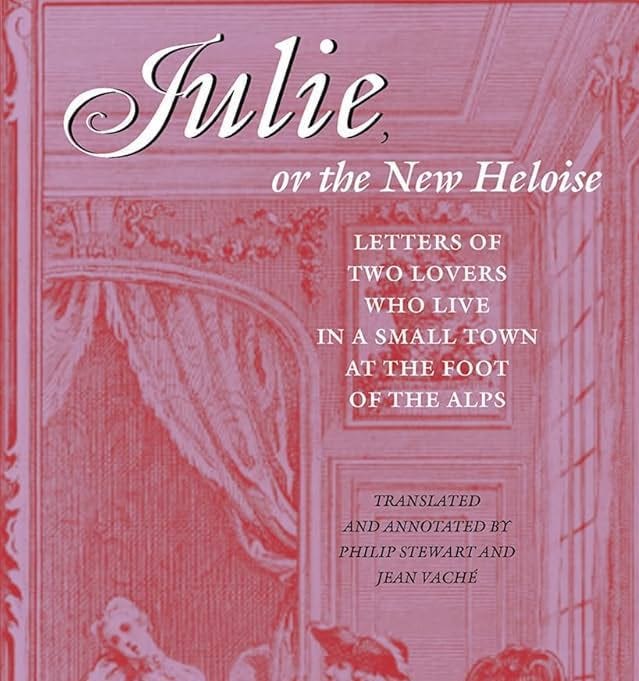
Meanwhile, the culture I grew up in—Australia, the broader Anglo-West—told a different story. In it, stoicism reigned supreme. Emotional restraint was survival. Feeling too much only opened you up to ridicule.
A lot of this mindset can be traced back to the influence of Protestantism and British stoicism. In early Anglo-Protestant societies, controlling your emotions was seen as evidence of spiritual and moral superiority.
The Protestant Reformation of the 16th century rejected the extravagance and emotional display of Catholic rituals, arguing instead for a stripped-back, disciplined, deeply personal relationship with God. Intense passions like romantic love, sexual desire, and even grief, were seen as distractions—pulling the soul away from rational devotion. Basically, the more you could master your inner life—your desires, your impulses, your yearning—the closer you were believed to be to God.
This moral philosophy bled into everyday culture, particularly through Puritanism (which heavily influenced early British and American societies). To feel was human but restraint was divine. And ‘divinity’ was the goal.
This is why our favourite British characters are stereotypically tough. To fight back the tears is very ‘British’ and it’s often the patriarchs and matriarchs who lead by example. Still, to this day, my Anglo friends take pride in not crying when they’re sad.
But in Europe, things were different.
Maybe because their art always celebrated the ache. Maybe because centuries of war, revolutions, and rebirth taught them that love—and loss—were inevitable (and beautiful?) parts of living.
I grew up in Australia, but half of my family were Italian. I didn’t understand this growing up, but I was torn between a culture that celebrates feeling big and a culture that celebrates feeling nothing. And, while feeling big came more naturally to me, I lived in the place where feeling nothing was a cultural cornerstone. So, I conceded.
I saw it as empowerment. Here I was, a young girl taking control of her own sexuality, her own story, the master of her own sexual power. I told the men when they could come and see me, I told them when to leave, I told them how they made me feel when I had my clothes off, and I told them when things were over. I thought I was the one making the rules.
But recently, I realised that that’s not true. If I were truly in control, I would have written a different story. It would have looked a lot like that delicious first date in Italy.
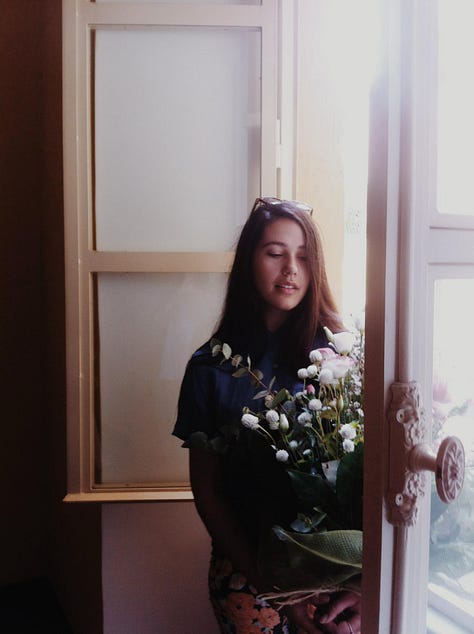
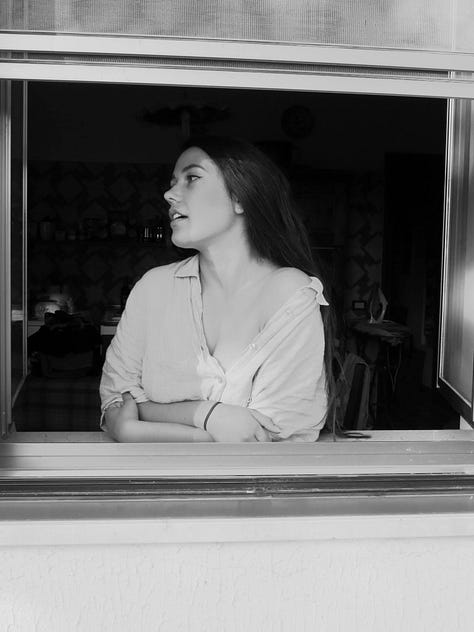
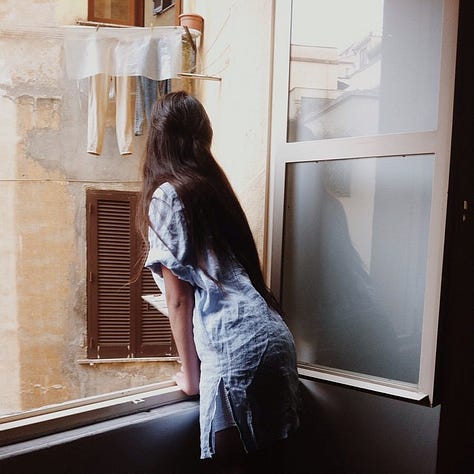
I would have thrived in an environment of respect, romance, commitment and expressing big feelings in big ways. I probably still would have felt scared, but the fear would’ve felt like a part of the thrill of love, rather than a source of ridicule that would taint my social reputation forever.
It was a stark discovery. To realise that the ‘empowered’ early-twenties version of me was actually giving in to the religious, patriarchal and cultural structures at bay. I’d always told this story of my sexual awakening being when I took control of the narrative and was free to explore without consequence. And there’s still a part of me that believes there was an element of freedom in that. That being stoic and nonchalant myself, allowed me to experience sex in a way that was emotionally detached and safe. Like I was playing this character that couldn’t get hurt, and so I didn’t. And I learnt a lot about my desires, my body and my feminine power during that time.
But, that doesn’t mean that I was empowered. I was playing within rules that had been set by a higher power—and I found a way to navigate my own growth within that.
And the truth is, I think a lot of us are doing that. Dating today is a wasteland of nonchalance. Apps have made us feel both disposable and replaceable. Sincerity feels risky. Vulnerability feels embarrassing. I see the raw emotion playing out on all social media feeds after disastrous first dates and disrespectful lack of comms. The women are over it. The men are lost. No one feels very valuable, or cherished, or worthy of big romantic gestures. Because we still live in a Western world where it’s cool to not care.
I was having a conversation with my boyfriend recently about situationships in our early twenties. He said that he often knew that girls wanted more, even though they said they didn’t. He said that sometimes he’d try to talk to them about it, but they’d get defensive. It made me realise that we’re so often working against each other, when really we want the same things. We’re just terrified to say it first.
Men feel just as much pressure to be nonchalant as women do. We might live in a patriarchal society, but men often feel like women hold the power; especially when it comes to sex. Women feel the opposite.
I feel like we need to talk to each other more. It will probably often not to go to plan. If you like a person you’re regularly sleeping with and you tell them that, they’ll likely fob you off rather than dealing with their own feelings—or yours. If they were born into a Western culture, they’ve been taught to do that. But some of them won’t. Some will surprise you. You won’t know unless you’re honest.
I know that feels impossible, and that all cultural narratives are telling you to hold back, pretend, keep it in—but you deserve more. So, I urge you to go against the cultural grain and say what you’re feeling, what you’re worried will ostracise you. You can’t keep your feelings in forever. I’ve seen people try and it’s always a disaster.
If you’re done denying that you give a shit, get out of the nonchalance cycle that is Western culture. Say how you feel. Watch some people run and some people stay. It’s the only way to find yourself in relationships that make you happy.
And then, if all else fails, there’s always Italy.
Hey, quick side note. I’d love for you to follow me on Instagram. I share all of my other work on there, including my fortnightly sex column. Come and connect. My DMs are always open.


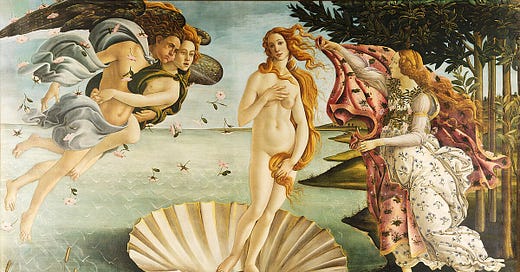



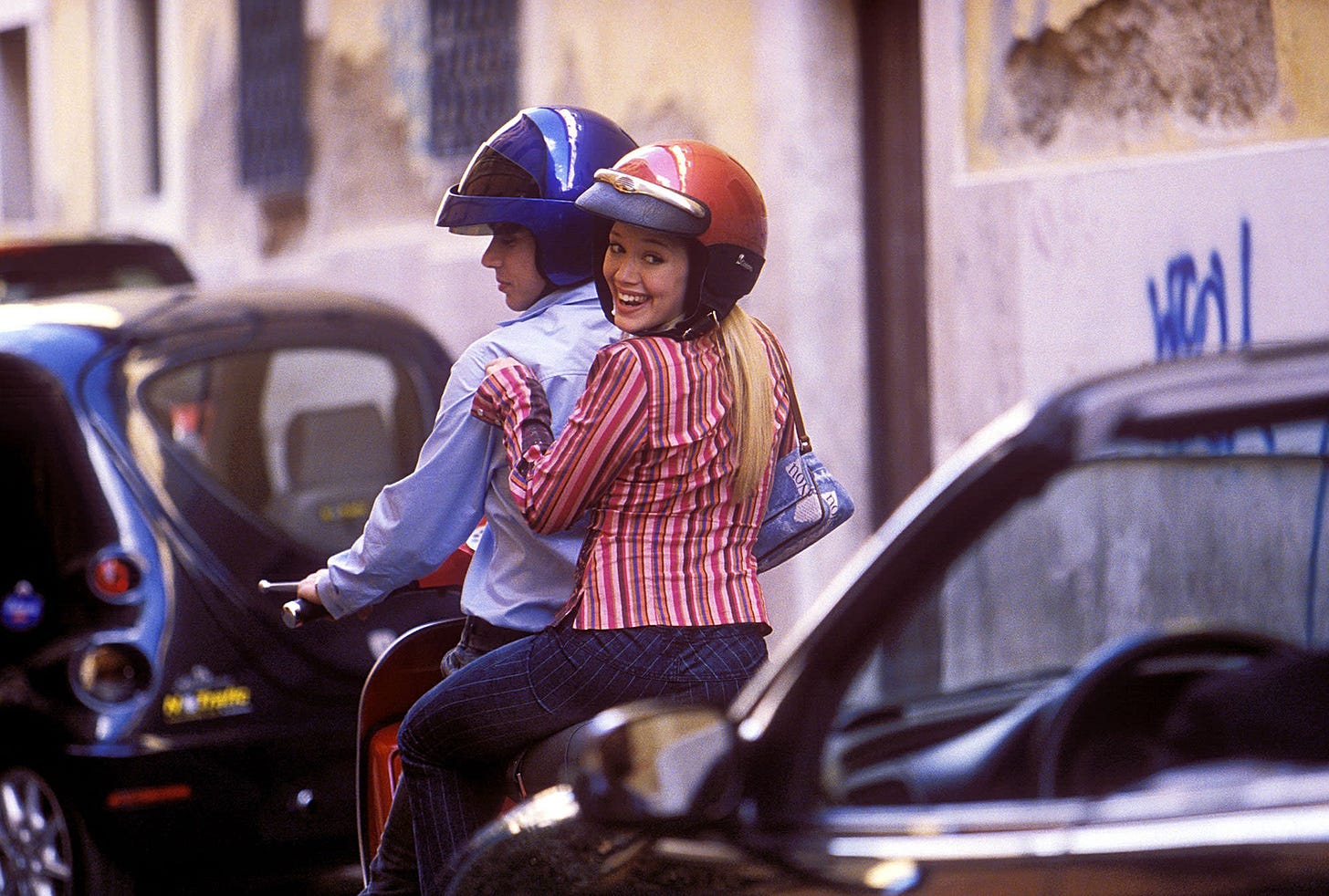
Terrific post. I'm Canadian - born to two Italian immigrants. I am a romantic - always have been. Had no idea that the nonchalance, pretend to feel nothing persona was rooted in religion. Terrific insight.
For me, feeling big is not a choice, it's a reality.
absolutely loved this one. I have a friend who is CRASHING out over a 4 month relationship and I keep thinking how nice it is to be around someone who truly lets themself FEEL. (which I occasionally think I am determined to never do again because my heart got so broken two years ago.) thanks for sharing this, in the same vein... loved it.